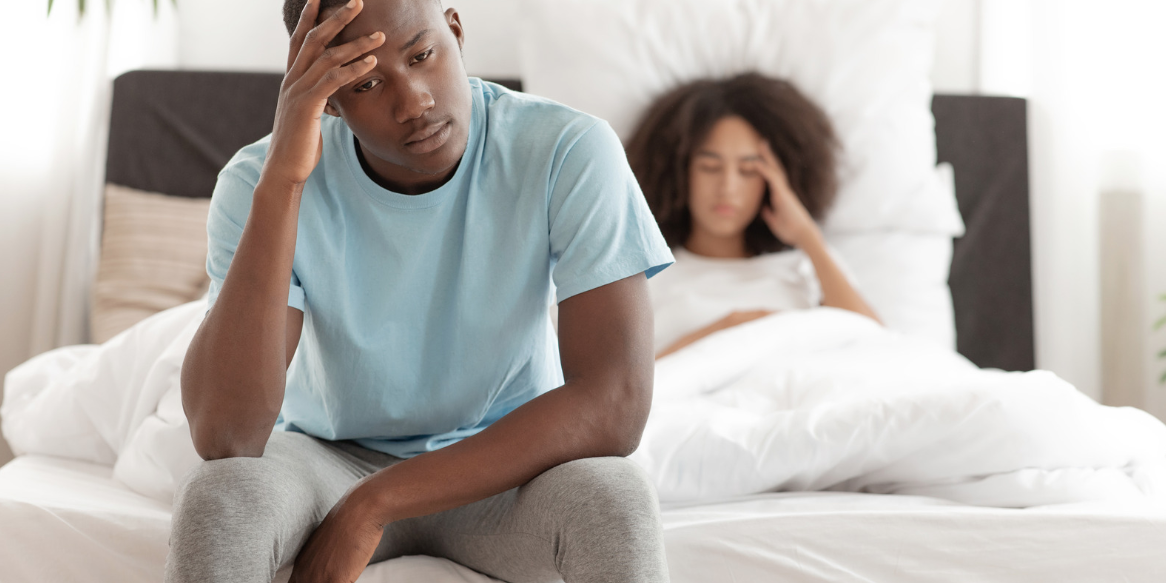A satisfying and fulfilling intimate life is a vital aspect of overall well-being for many men. However, there are times when desire seems to wane, leaving men to grapple with the complex issue of low libido. Low libido, or a decreased interest in sexual activity, is a common concern that can affect men of all ages. In this blog, Causes of Low Libido in Men, we will delve into the multifaceted factors that can contribute to this condition.By understanding the root causes, men can take proactive steps to address and improve their intimate lives, ultimately promoting a sense of confidence and vitality.
Too Little Or Too Much Exercise
Exercise, the cornerstone of a healthy lifestyle, plays a pivotal role in sexual desire. But here’s the catch—both too little and too much exercise can impact libido. While regular, moderate physical activity can enhance sexual desire and function by increasing blood flow, improving mood, and promoting overall well-being, excessive exercise or a sedentary lifestyle can lead to diminished libido. Striking the right balance is key. Engaging in regular, moderate exercise not only boosts testosterone levels but also alleviates stress and enhances body image, all of which contribute to a healthy libido.
Low Testosterone
Testosterone, often dubbed the male sex hormone, plays a central role in a man’s sexual desire. As men age, testosterone levels tend to decrease, which can lead to a diminished libido. Additionally, certain health conditions and medications can contribute to low testosterone levels. Understanding and addressing hormonal imbalances, including testosterone levels, is essential for restoring healthy sexual function. Consulting with a healthcare provider and exploring treatment options can help men regain their vitality.
Medications
Certain medications, particularly those used to treat conditions like hypertension, depression, and prostate issues, can have sexual side effects, including low libido. It’s crucial for men to communicate with their healthcare provider if they suspect that their medication is impacting their sexual desire. Often, healthcare providers can explore alternative medications or treatment options to alleviate this concern while maintaining overall health.
Low Self-Esteem
Low self-esteem can profoundly impact sexual desire. A negative self-image and a lack of confidence in one’s own attractiveness can lead to a decreased interest in sexual activity. This deeply personal issue can significantly affect one’s relationship with their own body and their partner. Working on self-esteem and self-acceptance is essential for boosting libido and promoting a healthy self-image. Engaging in self-care, seeking counseling or therapy, and building a positive self-image can be transformative in rekindling one’s passion.
Relationship Problems
The dynamics of a relationship can be some of the lead causes of low libido in men. Communication issues, unresolved conflicts, or a lack of emotional intimacy can lead to decreased desire for sexual activity. Open and honest communication with your partner is often the first step in addressing these issues and rekindling the flame of desire. Couples counseling or therapy can provide valuable tools to improve emotional connection and enhance intimacy.
Stress and Exhaustion
In our fast-paced and demanding world, stress and exhaustion are often silent culprits when it comes to low libido. The pressures of work, family, and daily responsibilities can leave men physically and mentally drained, making it difficult to summon the energy for intimacy. Chronic stress triggers the release of cortisol, which can disrupt hormonal balance and hinder sexual desire. Additionally, fatigue and sleep deprivation further contribute to low libido. Prioritizing stress management techniques, such as mindfulness, meditation, or relaxation exercises, as well as ensuring adequate rest, can be pivotal in reinvigorating one’s intimate life. Balancing the demands of daily life with self-care and relaxation is a crucial step toward revitalizing one’s passion and energy for intimacy.
Thomas Rea Therapy
Low libido is a common concern for many men, but it’s essential to recognize that there are multiple potential causes. By delving into these causes of low libido in men, men can begin to take proactive steps to address the root causes. Whether it’s finding the right balance in exercise, seeking medical advice for hormonal imbalances, addressing self-esteem issues, or nurturing a healthy relationship, understanding the underlying causes of low libido is the first step toward revitalizing one’s intimate life. Ultimately, embracing these challenges and seeking support when needed can lead to a fulfilling and satisfying sexual experience for men of all ages. Remember, addressing low libido is a journey to rediscovering a fulfilling and confident intimate life.
If you or someone you know is struggling with low libido, there is no shame in reaching out for professional help if you are in need. For individuals seeking guidance or support related to non-traditional relationships and sexual orientation, therapists like Thomas Rea, who specialize in non-traditional relationships and LGBTQ+ issues, can provide valuable resources and counseling to navigate these complex aspects of human relationships and identity. To receive help from a professional contact Thomas Rea Therapy today!







